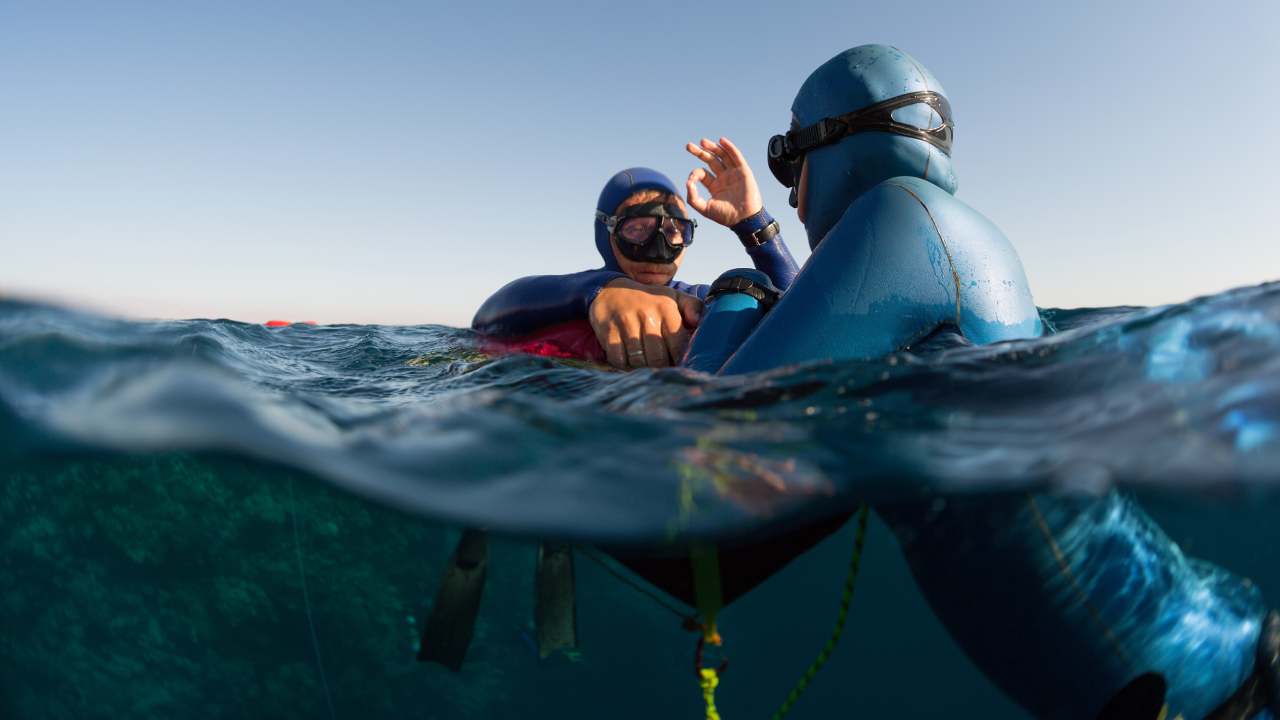
Freediving is always an exhilarating experience.
However, whether you’re a beginner in freediving, a seasoned freediver or just considering pursuing freediving, you want to make sure your dives are as safe as they are fun.
Since all places underwater can be potentially treacherous, it helps to be prepared with:
So dive in and read through our freediving safety tips as you gear up for your next freediving adventure!
Freediving safety encompasses a series of practices and guidelines designed to minimise the risks associated with freediving.
Safety measures in freediving include proper breath-holding techniques, understanding how the human body responds to the water, recognising the risks of freediving and having all the necessary equipment and systems in place.
Understanding and practising freediving safety measures are essential to prevent accidents, injuries, and fatalities. In Australia, where the coastline is vast and inviting, the need for freediving safety awareness is even greater.
So, before you take a deep breath and explore the beauty of the Australian underwater landscape, it helps to take note of the potential risks and emergencies that can occur when freediving.
The following can occur during freediving:
Freediving blackout occurs when a diver loses consciousness due to low oxygen levels, usually during the ascent phase. It can happen suddenly and without warning.
Pressure changes underwater can cause barotrauma, affecting the ears, sinuses, and lungs. Understanding equalisation techniques and practising them correctly is crucial to avoid this condition.
Freedivers can become entangled in marine flora, dive lines or surface lines, posing a significant risk. Proper training and awareness can prevent such entanglements and help you respond effectively if they occur.
Learn correct freediving knots such as the daisy chain and the bow line to avoid this.
While rare, encounters with marine life can be dangerous, especially with certain species like sharks. Understanding their behaviour and having a plan in place for these situations is vital.
Equipment failures, such as a flooded freediving mask, malfunctioning dive watch, or self-inflicted speargun wound, can lead to emergencies. Regular equipment maintenance and carrying backup gear are essential for preparedness.
However, there’s a way to protect yourself during freediving trips and prepare for these kinds of emergencies.
Freediving safety goes beyond understanding the risks – it involves preparation and having a clear plan of action for various emergencies. Here are some essential steps to take:
Never freedive alone. A freediving buddy can provide support, assistance and most importantly, rescue in case of emergencies. Social dives are a great way to ensure you have people watching over you while also having fun!
Develop an emergency plan before each dive. Discuss communication signals and establish a clear understanding of how to respond to specific situations. Know entry and exit points, and be aware of tides, swell and wind.
Carry essential emergency equipment, such as a rescue buoy, a first-aid kit, and a dive knife if possible. These can be invaluable in critical situations.
Keep a check on your physical health, as pre-existing medical conditions can increase the risk of emergencies while freediving.
Understanding your personal limits is essential. Never push yourself beyond your comfort zone or fitness level and be prepared to abort a dive if you feel unwell or uneasy. Only do dives that feel good!
While knowing about the potential risks and emergency procedures is essential, it’s equally important to be properly trained by certified freediving instructors through a comprehensive freediving course.
These experts provide comprehensive guidance on safety, techniques, and the physiological aspects of freediving. They ensure that you not only know what emergencies are possible but also how to prepare for them properly.
Training is always the best way to prepare for your upcoming freediving trips.
At Freediving Central, we offer beginner, intermediate and advanced freediving courses, as well as freediving courses for instructors.
Even if you already have freediving experience, our courses can help you refine your technique and prepare you for freediving emergencies.
Discover various breathing techniques that are commonly used in freediving and relaxation practices. Whether you’re an experienced freediver or someone looking to reduce stress and anxiety, these techniques can help you achieve your goals.